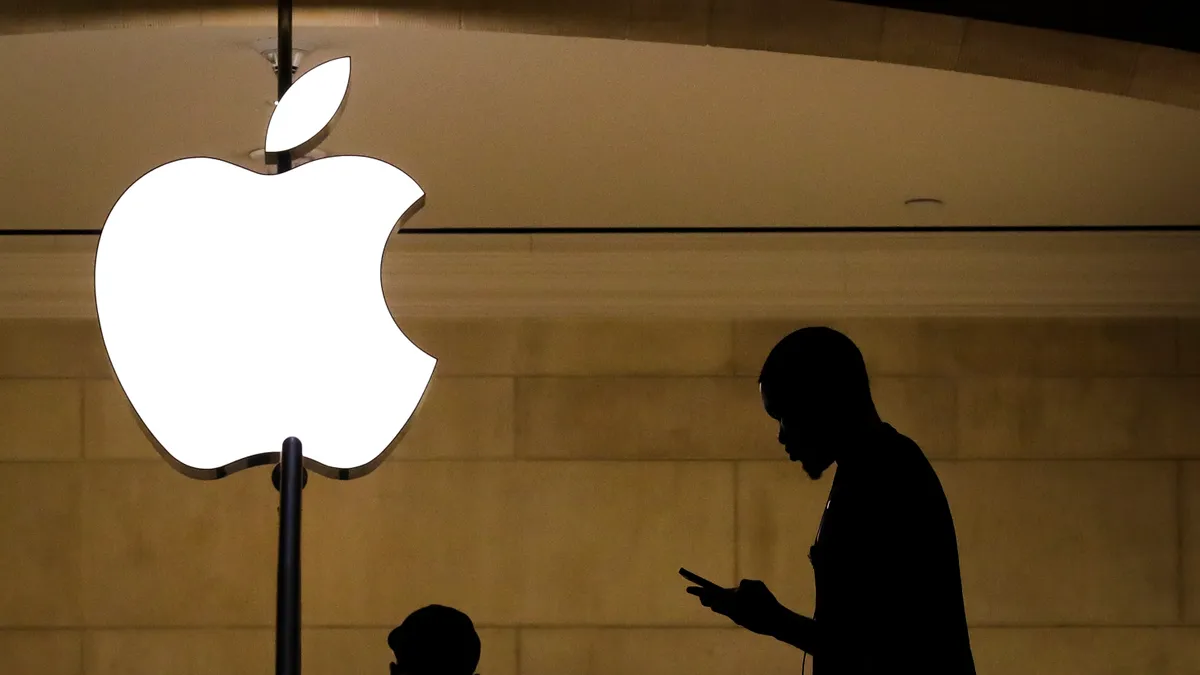Dive Brief:
- A California district court approved a $30.4 million settlement agreement between Apple and a class of workers who were required to undergo off-the-clock bag searches. The settlement, approved Aug. 13, ends a legal ordeal that began nearly a decade ago (Frlekin v. Apple, Inc., No. 3:13-cv-03451, (N.D. Calif. Aug. 13, 2022)).
- The case dates back to a complaint filed in 2013 alleging Apple employees were made to undergo bag searches as a security measure when they left the store for meal breaks and after shifts — after clocking out. The process usually took 5-15 minutes, the complaint said, requiring approximately one hour per week of unpaid employee time. The class-action suit charged the lack of compensation during these processes was a violation of the Fair Labor Standards Act and California labor law. In 2020, the California Supreme Court found in the plaintiffs’ favor; the 9th U.S. Circuit Court of Appeals affirmed later that year.
- The bulk of Apple’s settlement (approximately $20.5 million) will be paid out as individual payments to the 14,678 members of the class action, resulting in an approximate net payment per class member of $1,328, according to court documents. The remaining third will pay for attorneys’ fees, litigation costs and other payments.
Dive Insight:
The end of Apple’s nearly decadelong case offers an expensive lesson in abiding by wage and hour laws, both federal and state. The road to the final decision was winding, however, with multiple legal entities weighing in and some initial disagreement.
The case hinged on a very specific question: Are employees entitled to compensation for security checks that occur for items they bring in to work “purely for personal convenience”? In other words, if employees could theoretically choose to forego their bringing their personal items, is Apple responsible for compensating them for checks that occur when they do?
In November 2015, a California district court determined the answer to be “no.” It noted that “plaintiffs could freely choose to avoid the Apple’s [sic] control during the searches by declining to bring a bag.”
The plaintiffs appealed the decision, and the 9th U.S. Circuit Court of Appeals asked the California Supreme Court to weigh in. Counter to the district court, the Supreme Court determined that — under the California Code of Regulations and California’s Wage Order 7 — time spent waiting for and undergoing bag searches is compensable as “hours worked.”
Why? It focused on the “control” element of “hours worked,” which state law defines as “the time during which an employee is subject to the control of an employer, and includes all the time the employee is suffered or permitted to work, whether or not required to do so.”
“Applying a strictly textual analysis, Apple employees are clearly under Apple’s control while awaiting, and during, the exit searches,” the court wrote. “Apple controls its employees during this time in several ways,” it explained, noting, for example, that employees could be disciplined or terminated for not submitting to bag checks and that employees are confined to the premises during the searches.
The court dismissed the voluntary aspect of bringing bags as irrelevant. “Apple asserts that an employee’s activity must be ‘required’ and ‘unavoidable’ in order to be compensable,” it wrote. “But these words do not appear in the control clause.”
Ultimately, the 9th Circuit agreed, reversing the district court’s ruling.
While the case initially involved the FLSA in addition to California law, the non-California law claims were stayed and dismissed following the U.S. Supreme Court’s Integrity Staffing Solutions, Inc. v. Busk decision in 2014, which held that time spent undergoing mandatory security screenings was not compensable under the FLSA.














